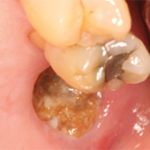“All scientists in ‘bone world’ know that denosumab can increase BMD to a larger extent compared to bisphosphonates (e.g., alendronate),” says Dr. Giovanni Adami, a rheumatologist at the University of Verona, Italy, who was not involved in the research.
“The value of Dr. Mok’s study,” Dr. Adami tells Reuters Health by email, “is providing new evidence that denosumab can suppress bone-turnover markers better than alendronate even in long-term glucocorticoid users.”
Kenneth Saag , MD, MSc, of the University of Alabama at Birmingham, who previously led an industry-funded trial showing that denosumab was superior to risedronate, described the new research as “confirmatory” of his own group’s findings.2
“It is good to have choices,” Dr. Saag tells Reuters Health by email. “The mechanisms of how these drugs work and how they are delivered is slightly different.”
Dr. Mok and colleagues conclude that randomized controlled trials “of large sample size and longer follow-up are needed to address the issue of anti-fracture efficacy and long-term safety of denosumab in the treatment of glucocorticoid-induced osteoporosis.”
References
- Mok CC, Ho LY, Leung SMT, et al. Denosumab versus alendronate in long-term glucocorticoid users: A 12-month randomized controlled trial. Bone. 2021 Feb 23;146:115902. Online ahead of print.
- Saag KG, Pannacciulli N, Geusens P, et al. Denosumab versus risedronate in glucocorticoid-induced osteoporosis: Final results of a twenty-four month randomized, double-blind, double-dummy trial. Arthritis Rheumatol. 2019 Jul;71(7):1174–1184. Epub 2019 May 25.
